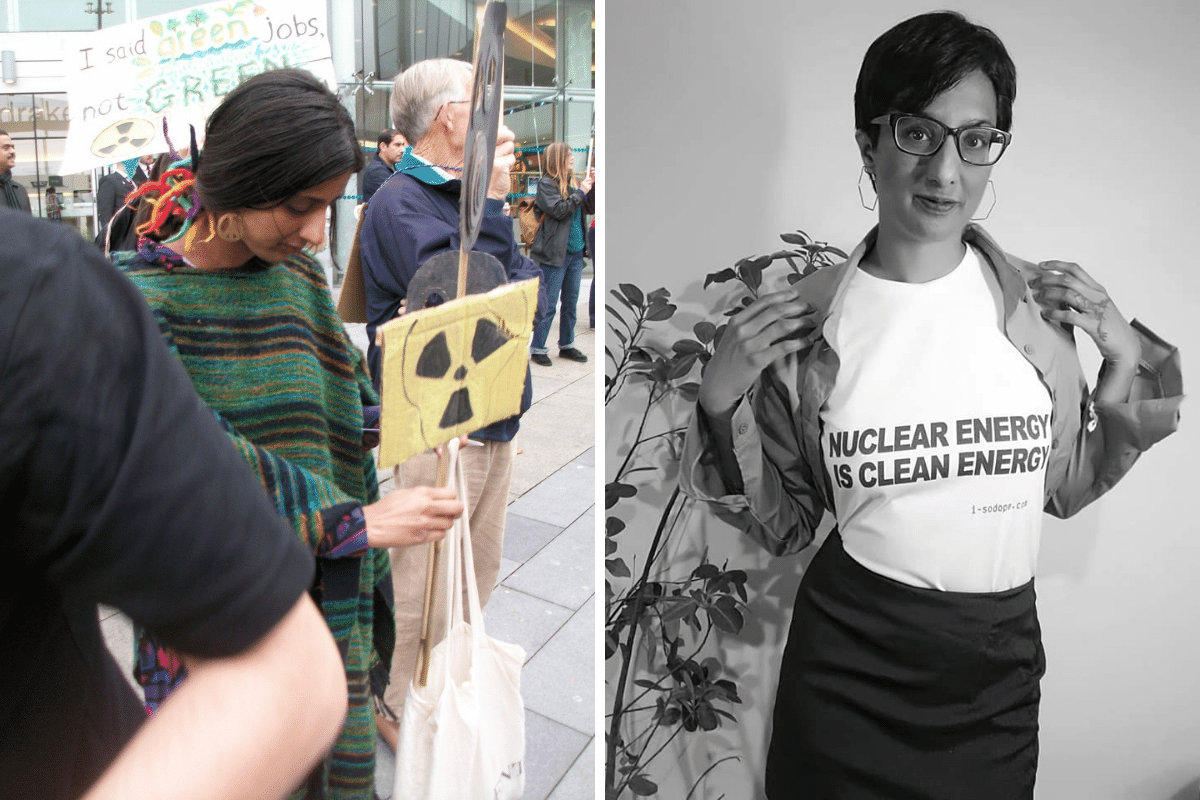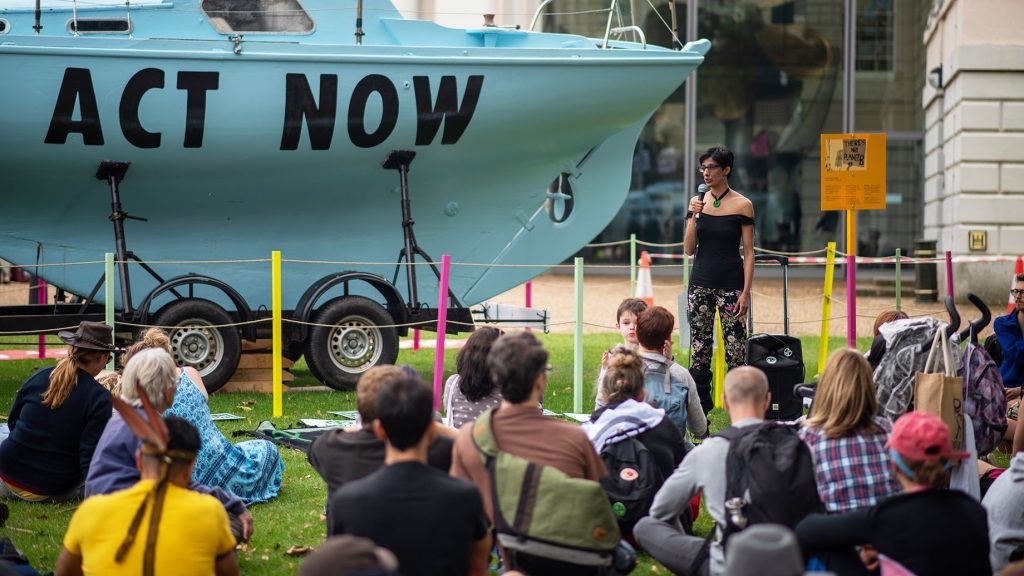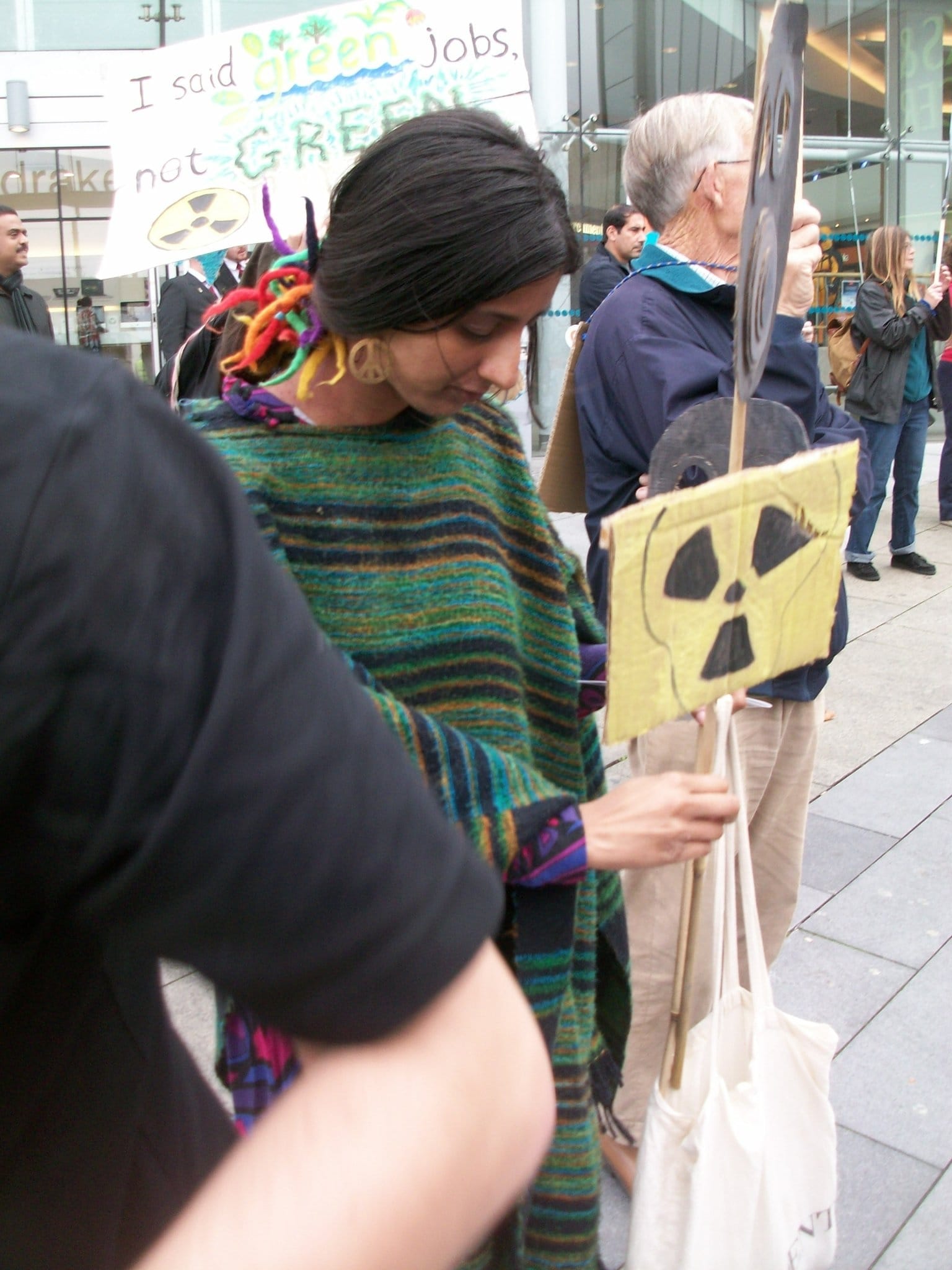Top Stories
The Sad Truth About Traditional Environmentalism
For too long traditional environmentalism has led the way with unscientific beliefs and ideologies, attacking anyone who holds opposing opinions, while demanding that the world’s largest cake be baked without flour.

What if you’d dedicated most of your life to trying to save the planet, but then you realised that you may have actually—potentially—made things worse?
Over the last few years this has become one of my main concerns. I’ve been active in various green groups for over a decade, from setting up the first green society at my university and getting them to switch to renewable energy 15 years ago, to being one of the leading spokespeople for Extinction Rebellion as recently as last year.

Through writing, public speaking, and taking direct action (I was arrested multiple times for climate action in the early 2000s), I have done everything in my power to fight to bring down global greenhouse gas emissions. And I have come to the stark realisation that nothing I have done has worked. Worse, emissions have continued to rise despite public concern for the environment (in the UK at least) being as high as it has ever been.
Something has gone wrong.
Many people do care about the health of our planet and want clean air and green spaces for themselves and their children. Many people do understand that climate change is a problem, and they want to see action taken to address it. But climate action has now become mixed up with so many other issues that these core elements have gotten lost. It has become difficult to talk about making energy policies for combating climate change, for example, without being told that such thinking is actually irrelevant because it doesn’t involve system change, or that calling for political change is pointless because “politics is broken,” and so on. To take this thinking to its logical conclusion—there is no system change on a dead planet.
Meanwhile, the planet continues to warm. After having spent a long time attempting to act on these issues—long before Greta Thunberg was a household name—I’ve realised just how much of the problem comes down to energy density. And the solution is not about focusing on energy reduction per se, but switching from “dirty” energy sources to those which are clean.
There are three main reasons why I believe this. Firstly, because our energy use continues to go up. In fact, we are great at finding new ways of using more energy. Secondly, because most people don’t want to cut back on how much energy they use, and nobody has found a way to change this significantly in the last decade. And thirdly, because even if we did all suddenly commit to living low carbon lifestyles, the outcome would still barely dent our emissions. We use a lot of energy, and we take it for granted, from cooking our food, to switching on the lights when it gets dark, to having access to care in hospitals where blackouts simply aren’t an issue.
The focus therefore needs to be on ensuring that our growing energy needs are met with clean and reliable sources, and without unnecessary additional costs to the individual that might deepen social inequality.
We need cheap, clean energy at scale and we need it now. Here’s another blunt fact: almost three-quarters of our emissions come from energy use. To talk about climate change without mentioning emissions is like talking about baking a cake without mentioning flour. Yet many mainstream environmental groups are doing this, and have been doing this since the advent of cake-baking.
These groups regularly point to data from the Intergovernmental Panel on Climate Change (IPCC) when calling for climate action. But the same groups ignore the key section of the IPCC report on mitigation—the chapter on energy, by Working Group Three. All of the decarbonisation pathways in this section outline a combination of renewables, nuclear energy, and carbon capture and storage to quench our greenhouse gas emissions. This is not speculation or opinion, but data in its simplest form: arithmetic.
The element of nuclear energy however has long been rejected by most of the major green groups, including Greenpeace and Friends of the Earth globally, the RSPB in the UK (which allowed a gas plant on one of their reserves but is protesting a nuclear plant on another), and the Sierra Club in the USA. Some individual scientists and activists have joined them in calling for 100 percent renewable grids without nuclear power despite the fact that it is not feasible—in fact only five countries with large electrical grids have low carbon emissions and they rely on constant large-scale hydropower and nuclear energy, with a little intermittent solar and wind power on top.
The fact that wind and solar technology require backup is not lost on all of us, as you can see from the comments on the Natural Resources Defense Council (NRDC)’s recent tweet where they celebrate their victory in recently closing down a nuclear power plant in the US, Indian Point.
It's been an honor for NRDC to work with our tireless partners and advocates who have fought long and hard to close #IndianPoint, to push back on fossil fuels, and to move New York forward on #CleanEnergy. 🎊 https://t.co/R4v28WbIc5
— NRDC 🌎🏡 (@NRDC) April 30, 2021
The response from almost everyone in the comments is that phasing out nuclear power during a climate emergency is bad news for the environment, as the consequence of this will be continued reliance on fossil fuels. The NRDC is eerily silent in the comments section, standing by their victory and anti-nuclear ideology. This scenario has played out again and again on social media, on Greenpeace posts as well, and it represents the divide between ordinary concerned citizens and out of touch NGOs.
Historically, whenever nuclear power plants are shut down, they are replaced by fossil fuels. The stark example of this is Germany, which decided to phase out nuclear power altogether due to an overreaction and sore misunderstanding of the facts about what happened at Fukushima. Germany now has the dirtiest energy mix in Europe, as the closed nuclear plants have been replaced with imported coal.
Herein lies the rub. The very same groups that claim to fight for the wellbeing of our planet—the NRDC dubs itself “Earth’s best defense”—are pushing for and achieving policies that are actually the opposite to effective climate action. And because they are well established as “green” groups, they get a pass. They don’t get criticised. They get funded. It’s business as usual, for them. What they are calling for—wishful thinking with renewable technology that requires baseload power that almost always ends up being fossil fuels—does not get called “greenwashing” even though that’s exactly what it is.
No one wants to be the bad guy who takes on the groups that have long positioned themselves as the good guys. But the closure of Indian Point, for example, is not good news. It means the loss of clean, firm power to over a million homes, and the loss of over a thousand jobs. I see no reason to celebrate.

I do understand the NRDC’s stance—since I once fell for scaremongering and conspiracy theories regarding nuclear power myself. I even protested against it. I believed that nuclear waste is unmanageable and poses a threat to life, and that radiation warrants the closure of nuclear power stations. All of these beliefs were wrong. For many years I had criticised anti-vaxxers for taking a position that goes against scientific consensus, but I had been anti-nuclear myself which also goes against the scientific consensus.
I shudder to think of the damage this may have done to our planet. Misinformed beliefs have consequences.
France did things differently back in the 1970s, when they decarbonised in under 12 years through building nuclear power plants, which means that they have one of the cleanest energy mixes in Europe.
Yet the ideology that worships renewables and only renewables pervades. It has become the latest green god: sun-like, literally. A once-leading boomer environmentalist in the UK recently wrote the headline in a national newspaper: “Don’t believe hydrogen and nuclear hype—they can’t get us to net zero carbon by 2050. Big industry players pushing techno-fixes are ignoring the only realistic solution to the climate crisis: renewables.” See what he did there? Apparently nuclear and hydrogen are classed as technology, but renewables are not. As if they are constructed with magic—by the solar gods.
The problem with this fantasy thinking is that it is locking us into yet more global heating, and continued air pollution. Air pollution from fossil fuels kills over eight million people a year—and that’s a conservative estimate. We should be rallying to move toward clean energy sources in order to decarbonise, not toward 100 percent renewables because sunshine sounds more friendly.

Climate change is happening because of humans—that is a fact. Nuclear power is needed on a large scale to help to address it—that is also a fact. If we are doomed, it’s the so-called traditional green groups that are likely to doom us all. Energy is where most of our emissions come from, so if we want to stop climate change, we need to decarbonise as quickly as possible. The result will be cleaner air and fewer deaths from air pollution; thriving species and habitats instead of decline and extinction, and a more stable climate such as humans have enjoyed for most of their time on Earth.
It’s not an easy thing to stand for something that a large and powerful “tribe” is against. You will likely be attacked, mocked, and disregarded. You may lose friends. If you change your mind and go against the status quo, funding is harder too. You may be cancelled, censored, and publicly critiqued. But knowing that you’re doing the right thing makes it worth it.
Climate change is, arguably, the one time in history where the trueness of our various ideologies is constantly being measured by an irrefutable material metric: carbon emissions. There is no hiding from the fact that the boomer generation’s ideology was categorically wrong. Likewise, for me, there was no hiding from the fact that I needed to change my mind.
The problems with nuclear power are not technological, but political, and for too long the old-school environmentalist tribe that I once belonged to has dominated the narrative on what constitutes clean energy, what gets subsidised and built and what doesn’t. They’ve had the stage for decades, and we’ve watched emissions rise. It’s time for someone else to have a turn.
This is why I’ve founded Emergency Reactor, a new green campaign for evidence-based environmentalism. In the battle against misinformation, every small act can make a difference. We need to react now to the issues the world faces—air pollution, poverty, climate change—but we also need to react rationally.
For too long traditional environmentalism has led the way with unscientific beliefs and ideologies, attacking anyone who holds opposing opinions, while demanding that the world’s largest cake be baked without flour. This ideology has held us back, and this gatekeeping over environmentalism needs to end, because in too many cases, these groups are doing more harm than good to the planet they claim to defend.






